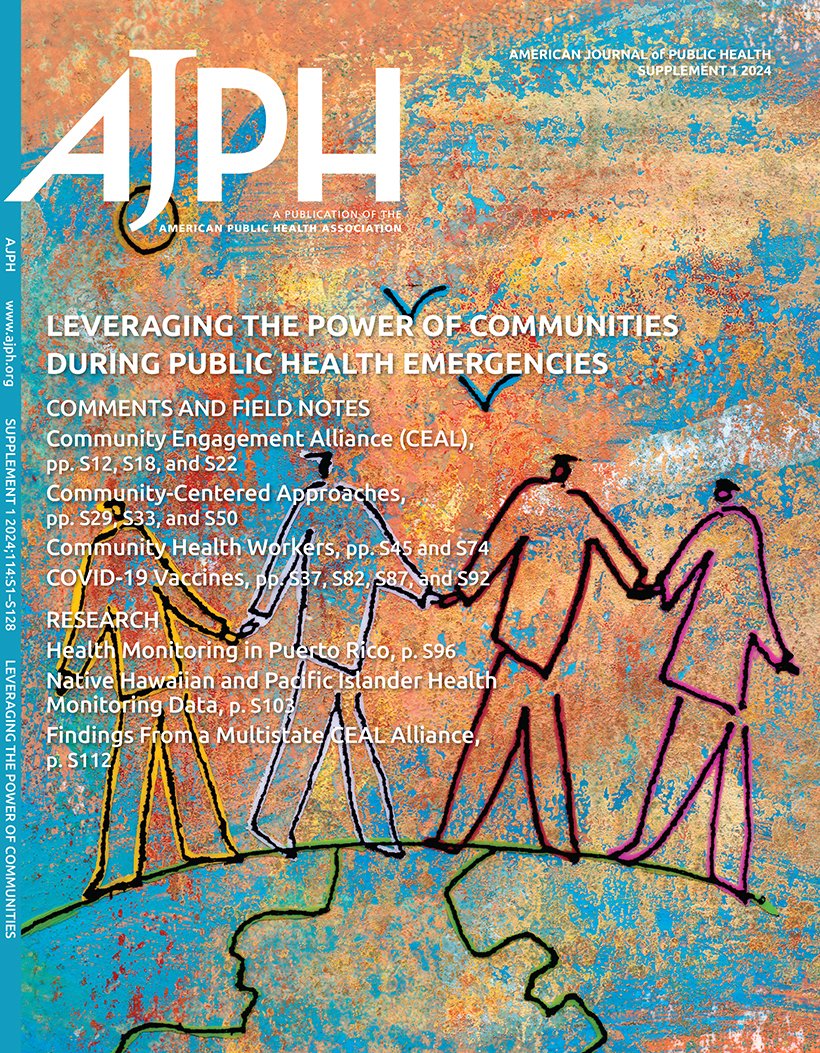管理和预算种族/民族数据分解办公室检查晚期艾滋病毒诊断的种族差异,夏威夷,2010-2022。
IF 9.6
1区 医学
Q1 PUBLIC, ENVIRONMENTAL & OCCUPATIONAL HEALTH
引用次数: 0
摘要
目标。在比1997年管理和预算办公室(OMB)更广泛的类别更细致的层面上考察种族差异时,评估种族差异。方法。我们通过OMB种族/民族类别和18类颗粒种族/民族变量检查了2010年至2022年夏威夷的艾滋病毒诊断,其中包括10个最常见的亚洲人和夏威夷原住民/其他太平洋岛民群体。我们使用多变量逻辑回归,调整潜在的混杂因素。结果。在2015年至2022年期间,使用OMB种族/族裔数据和白人作为对照组,我们发现亚洲人是唯一增加晚期HIV诊断几率的群体(调整后的优势比[AOR] = 3.69; 95%置信区间[CI] = 1.86, 7.33)。使用粒度种族/民族并以白人为对照组,我们发现菲律宾人(AOR = 5.42; 95% CI = 2.27, 13.0),没有种族数据的亚洲人(AOR = 8.21; 95% CI = 3.20, 21.06)和太平洋岛民(AOR = 4.02; 95% CI = 1.10, 14.63)的风险增加。结论。对种族/族裔数据的分类揭示了晚期艾滋病毒诊断的重要差异,否则这些差异将被掩盖。公共卫生影响。利用细粒度数据确定种族差异,可以采取更有针对性的干预措施,减少艾滋病毒晚期诊断并改善健康结果。公共卫生。2025年8月21日提前在线发布:e1-e10。https://doi.org/10.2105/AJPH.2025.308192)。本文章由计算机程序翻译,如有差异,请以英文原文为准。
Disaggregating Office of Management and Budget Race/Ethnicity Data to Examine Racial Disparities in Late-Stage HIV Diagnosis, Hawaii, 2010-2022.
Objectives. To evaluate racial disparities when examining race at a more granular level than the broader 1997 Office of Management and Budget (OMB) categories. Methods. We examined HIV diagnoses in Hawaii during 2010 to 2022 by OMB race/ethnicity categories and an 18-category granular race/ethnicity variable that included the 10 most frequent Asian and Native Hawaiian/other Pacific Islander groups. We used multivariable logistic regression, adjusting for potential confounders. Results. During 2015 to 2022, using OMB race/ethnicity data and White people as the comparison group, we found that Asians were the only group at increased odds (adjusted odds ratio [AOR] = 3.69; 95% confidence interval [CI] = 1.86, 7.33) for late-stage HIV diagnosis. Using granular race/ethnicity and with White people as the comparison group, we found that Filipinos (AOR = 5.42; 95% CI = 2.27, 13.0), Asians with no ethnicity data (AOR = 8.21; 95% CI = 3.20, 21.06), and Pacific Islanders other than Native Hawaiians (AOR = 4.02; 95% CI = 1.10, 14.63) were at increased odds. Conclusions. Disaggregating racial/ethnicity data revealed important disparities in late-stage HIV diagnosis that would otherwise be obscured. Public Health Implications. Identification of racial disparities using granular data enables more targeted interventions to reduce late-stage HIV diagnoses and to improve health outcomes. (Am J Public Health. Published online ahead of print August 21, 2025:e1-e10. https://doi.org/10.2105/AJPH.2025.308192).
求助全文
通过发布文献求助,成功后即可免费获取论文全文。
去求助
来源期刊

American journal of public health
医学-公共卫生、环境卫生与职业卫生
CiteScore
9.50
自引率
3.90%
发文量
1109
审稿时长
2-4 weeks
期刊介绍:
The American Journal of Public Health (AJPH) is dedicated to publishing original work in research, research methods, and program evaluation within the field of public health. The journal's mission is to advance public health research, policy, practice, and education.
 求助内容:
求助内容: 应助结果提醒方式:
应助结果提醒方式:


